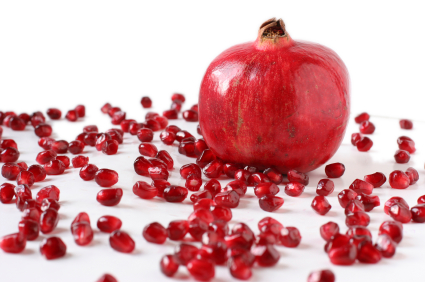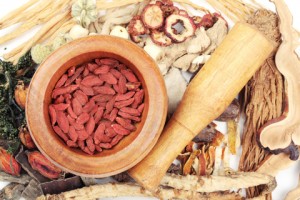Flash dance? Yeah, maybe!
Did you ever watch Flashdance, the 1983 film that tanked in reviews but went on to be one of the highest grossing films that year? Guess it says a lot about our culture. Still, I am not going to say that I didn’t find it entertaining, or that Michael Nouri wasn’t hot in his day. But I digress…
For some reason, the film’s title came to mind when I stumbled across study that examined whether or not aerobic activity could ameliorate hot flashes and night sweats, perhaps because a lot of us dance around the issue rather than address it until it gets intolerable. Or perhaps because it makes a catchy header. Or maybe because Jennifer Beals works up such a sweat during her stand-in’s routine.
Regardless, on the heels of last week’s three-parter on ‘Forties fitness’ and motivating women, I thought I’d share some interesting information regarding physical activity, namely aerobic exercise.
Exercise. I’ve been pushing it for years because for me, it’s my drug of choice. What else offers benefits that include endorphins, wellbeing, bone health, metabolic booster and weight maintenance? And who would have thought that just 5o minutes, four times weekly could have a significant effect on the main cause of menopause flooding, including irritability, clothing changes, sheet replacement and crummy sleep?
That’s what researchers are reporting in Menopause. They discovered that when they assigned menopausal women to 6 months of aerobic training, the women experienced dramatic changes in mood swing, night sweats and irritability. Briefly, the women were divided into two groups:
- 50 minutes unsupervised aerobic training that with walking or Nordic walking (walking with ski poles) at least twice a week added to walking, Nordic walking, jogging, cycling, swimming, skiing, instructed aerobics or step class twice a week, plus two health lectures or,
- Health lectures twice weekly
They researchers were able to track target heart rates (64% to 80% of maximal) because the women in the aerobic training group were monitored and then given feedback All the women also reported the frequency/severity of menopausal symptoms (frequency of night sweats, mood swings, irritability, depressive mood, headache, vaginal dryness and urinary symptoms).
Although declines in symptoms (except vaginal dryness) were seen in both groups (which accounts for what they call a placebo effect, common to all studies), reductions in the prevalence of night sweats, mood swings and irritability were significant only in women engaging in regular aerobic activity. What’s more, because the women recorded their symptoms via a mobile phone, the likelihood that recall issues might come into play were reduced.
So, what about other studies that haven’t shown any benefit from exercise? The researchers point out that in their study, all the women had fairly substantial rates of symptoms (e.g. up to 60% had night sweats, 25% depression/irritability and 30% headache) while in other studies, the numbers at the start of the trials haven’t been quite as robust.
The upshot is that f you don’t care to jump on the hormone train, it can’t hurt to give aerobic activity a whirl. Just be sure to speak to a certified trainer and your health practitioner before diving in.
Read More
Pomegranate seed oil and hot flashes
Let us go early to the vineyards to see, if the pomegranates are in bloom… Songs of Solomon 7:12
Pomegranates have had a place in the bible and many religions for centuries. A shrub fruit native to the Middle East, the pomegranate is valued in culinary and in complementary and folk medicine circles. As a fruit, there is none so tempting and tantalizing as the pomegranate – its seeds, both sweet and tart, are challenging to obtain and sensual in appearance.
Pomegranate seed oil is a rich source of phytoestrogens, plant-like compounds with estrogen properties that may influence estrogen receptors and modulators in the body. Its main components include linolenic acid (an unsaturated fatty acid that is in the omega-3 family), punicic acid (a conjugated polyunsaturated acid) and ellagic acid (an antioxidant found in many fruits and vegetables). Studies in mice suggest that pomegranate oil may be helpful in lowering blood pressure, counteracting insulin resistance and preventing prostate, colon, lung and breast cancer. Because of its estrogenic properties, it may also be useful for menopausal symptoms. Or not.
A study that appears in the online version of Menopause explores the value of pomegranate seed oil for hot flashes in 81 women. Over a 12 week period, these women received either capsules, twice daily, that contained 30 mg pomegranate seed oil or placebo capsules containing sunflower oil. All women participating in the study were in menopause for at least a year and reported having at least five hot flashes a day. None had taken hormone therapy within 3 months of starting the study, which of course, could affect results.
Women taking pomegranate oil experienced significant benefits, reducing the mean number of hot flashes by 4.3 a day. However, women taking placebo also reported significant reductions in hot flashes by as much as 2.5 per day. After 12 weeks, the pomegranate oil group had a reduction in hot flash frequency by as much as 38.7% compared to the placebo group, who had reductions by as much as 15.6%. Based on these numbers, it would appear that pomegranate seed oil was indeed, significantly more effective than placebo, right? However, the researchers say that the total reduction in the frequency of hot flashes was no different between women taking pomegranate oil and those taking placebo. At the same time? When they tracked the women past this time period (up to 24 weeks), they found that the differences remained, suggesting that the effects of pomegranate oil may be sustainable and even take a longer treatment time to reach its full effect. This warrants looking into its potential with larger studies of longer duration.
One thing to mention is that it did appear that pomegranate seed oil also benefited other symptoms, in particular sleeping disorders, which is in line with other studies looking at isoflavones. And, no side effects or serious adverse events were reported.
So does it or doesn’t it? Undoubtedly, the placebo effect plays a role in all clinical studies, whether or not they are focused on pharmaceutical treatments or complementary therapies. Other studies of phytoestrogens have shown mixed results and a small number have met the criteria for scientific design. Still, there is a question about the role that time plays; many herbal medicines are well known to take some time before reaching full potency in the body in order to exert any sort of intended effect.
I say that the verdict on pomegranate seed oil isn’t in yet. It’s not the panacea we’d like to see but it also isn’t a flat out failure.
Meanwhile, I love that I once heard chef Jose Andres suggest that the best way to access its seeds is to pat it like a baby’s bottom.
Stay tuned for more news on this jewel of the fruit world.
Read More
Friday Folly: Hot Flash Hell
Hot flashes? Sometimes ya just gott laugh cuz it could always be worse, right?
Enjoy and Happy Weekend!
Read MoreWednesday Bubble: More flack about flaxseed
First Bubble of the year!
Ya know, the news on flaxseed continues to be less than stellar, at least in so far as its effect (or lack thereof) on hot flashes. And while the flaxseed story continues to build on benefits in terms of bone health and even breast cancer reduction (see these links), you may want to seek alternatives when those flashes start taking over.
In fact, results of a well-designed, scientific, controlled study in which women ingested a daily flaxseed bar or a placebo bar failed to show much benefit at all. The study, published in this month’s Menopause journal, analyzed the effects of flaxseed (containing 400 mg of the estrogen like antioxidant, lignan, 6 gm of protein and 20% fiber) in 188 women in menopause who reported having anywhere from 4 to more than 10 hot flashes a day over a period of 9 months or more. Participants ate flaxseed or a placebo bar (containing 2 gram of protein and 20% fiber) for six weeks. The bars were eaten all at once or throughout the day and the women were asked to record the frequency and severity of their hot flashes in a personal diary.
The results? Regardless of whether or not the women ate flaxseed or placebo, their hot flashes were reduced fairly equally, with about about a third of the women in each group reduced their hot flash scores by 50% or more. Another third of women in each group noted that they didn’t experience any effect at all. Moreover, both types of bars caused gastrointestinal problems, namely bloating, gas and diarrhea, most like due to their considerable fiber content.
Meanwhile, if you like flaxseed, there is absolutely nothing wrong in eating it. It may help your bones, fight cholesterol and keep you regular. But in so far as the flashes go, you definitely want to look elsewhere.
[Evidently, this study first appeared online in September. Thanks to Ivan Oransky over at Reuters Health for the heads up. And if you want to read more, here’s their piece on the same study.
Read MoreNewsflash: black cohosh – one of these is not like the other
Love the first line of this editorial:
“Black cohosh preparations are not all the same.”
That is,
“Vigilance must be exercised when interpreting data.”
In other words, sometimes it appears that black cohosh is a significant and real alternative to hormones for battling hot flashes and even some other menopausal symptoms. And other times, it appears that it’s not. The reason? Product variability and dosage.
A bit of geek: you may recall that black cohosh is an herb from the buttercup family. Its scientific name is Cimicifuga racemosa. But, there are many different types (or species) of Cimicifuga and researchers say that when the continents split, these plants took different directions and ended up with distinct chemical compositions. Moreover, when they analyzed the products for certain active components, they found significant variability.
Add this to the fact that researchers studying black cohosh have used dosages ranging from 2.8 mg to 160 mg, and that these formulations were pure or were what they call “multibotanicals” (i.e. containing other herbs believed to be effective to qualm flashes and mood swings) and well, you have a veritable melting pot of clinical crap that defies logic. Add in a dash of more scientific geekdom know as a bell shaped response, in which low doses of a drug may be ineffective, moderate doses are effective and at higher doses, benefits disappear again, and well, it’s almost impossible to draw any firm conclusions.
Wow. Pretty scary, right?
The Menopause Industrial Complex will have you believe that the only effective preparations for ‘treating’ the disease they call menopause are pharmacological preparations manufactured by a large company and that has undergone rigorous, controlled scientific analysis. A lot of Western practitioners will have you believe that not only have herbs not be rigorously tested and studied under the same scientific conditions, but that they are downright ineffective and sometimes downright dangerous.
Guess what?
Both camps are incorrect. Because when you peruse the archives of the National Library of Medicine or esteemed journals like Maturitas or Menopause, you will find scientifically controlled evaluations of herbs. And, when researchers take the time to tease out data rather than drawing automatic conclusions (as the authors did in the piece I am referring to, which was published online in Maturitas at the end of December), they find that perhaps, the herbs are more effective than believed and that there are reasons for disparate results.
So, black cohosh, yay or nay?
Let’s get back to the original thought:
Black cohosh preparations are not all the same.
For me, a standardized extract that has undergone rigorous clinical study – Remifemin – works wonders. And I hear that it does for a lot of women. But not all women are the same either.
Two words.
Be vigilant.
Five more:
Don’t believe everything you read.
Happy New Year. Let’s approach this year as the year for opening our eyes and taking back our aging process.
Menopause? It’s not a disease and symptoms can be effectively and safely ameliorated with certain herbs. Just. Be. Vigilant.
Read More
Hot flashes, Traditional Chinese Medicine & JQF – it is time for an Rx change?
I am a huge fan of Traditional Chinese Medicine (TCM), having used various preparations over the past 20 years for numerous ailments. These preparations have been prescribed by a practitioner who is licensed and degreed in TCM and my experience, albeit anecdotal, has been nothing but positive. In fact, I have been using a TCM formulation for several years now to help battle numerous symptoms and in combination with other prescribed herbs, I’ve mostly won. That’s one of the main reasons that I am always intrigued when I stumble upon well-designed studies that demonstrate benefit, like this one in the journal Menopause.
A bit of context
TCM and other similar philosophies emphasizes various body systems that together, form a network or grid connected by a meridien, if you will, as well as the relationship of the body to its social and natural environment. Its primary focus on maintaining health and enhancing the body’s ability to fight off disease. TCM will not focus, for example, on treating specific pathogens but rather, on addressing non-specific factors that create disturbances or imbalances within a certain network. TCM also examines how these imbalances may occur in unique parts of a specific system, such as the heart and blood vessels and small intestine (all of which are part of the heart system) and how they change over time. Western medicine, on the other hand, focuses primarily on treating morbidities, or symptoms related to various conditions and diseases. You can read morerabout TCM in this post from last September.
In TCM, menopausal symptoms are believed to be related to a decline in yin or yang in the kidneys. One of the oldest prescriptions in TCM to reinforce kidney energy is known as ‘Qing E Fang’ (QEF) and the first record of its use dates back to the year 960. The preparation is a combination of four key ingredients that are mediated through estrogen receptors and expression, hence, its potential usefulness in menopause. (These ingredients, in case you are interested, are Cortex Eucommiae (whose bark and leaf have an antioxidant effect) Fructus Psoraleae (commonly used for bone health and to treat estrogen associated diseases), Semen Juglandis and Rhizoma Garlic.)
About the research
For this study, researchers used a formulation based on QEF known as Jiawei Qing’s Fang or, JQF, which used two of the four herbs (Cortex Eucommiae, Fructus Psoraleae) mentioned above. In JQF, they are combined with the herb, Salviae Miltiorrhizae, that has been used specifically to treat gynecological disorders and has properties that are similar to SERMs, drugs that mimic estrogen but are theoretically safer. The 72 women participating in the study were all perimenopausal and had severe and frequent hot flashes; they were randomly instructed to take JQF or placebo daily over 8 weeks. For a month thereafter, symptoms were evaluated using a menopause measure that looks at vasomotor, physical, psychosocial and sexual health). The women also kept daily diaries to record the frequency and severity of their flashes.
Notably, this is one of the first times that perimenopausal women have been the focus of a study that involves TCM. Moreover, in this study, researchers selected a formulation that worked on the kidney and also contained an herb that not only mimics SERMS but also improves blood circulation. And the findings? Women who randomly took JQF not only experienced significant improvements in their hot flashes, but also reported improvements in quality of life in terms of the impact of vasomotor and physical symptoms. Moreover, because Salviae Miltiorrhizae works on blood circulation, they also had reductions in the blood fats (triglyerides) which means that the formulation might also be beneficial in terms of heart disease prevention in menopausal women.
Is it time for a change of Rx for the change? Should you be seeking out a practitioner who can prescribe JQF and advise you on its best use for you? Or is it too early? JQF was well tolerated, although two women were found to have liver measures negatively affected in ways that did not require any medical intervention but did raise a few red flags and calls for more study. JQF represents a seemingly scientifically proven alternatives to hormone therapy. It’s refreshing to watch TCM come out of Asia and be increasingly incorporated into Western philosophy.











